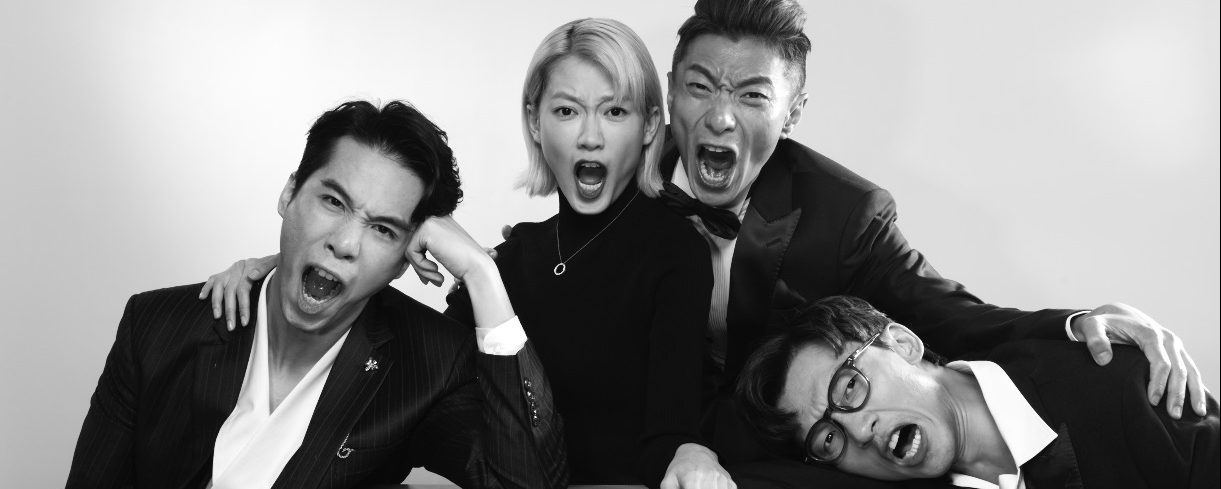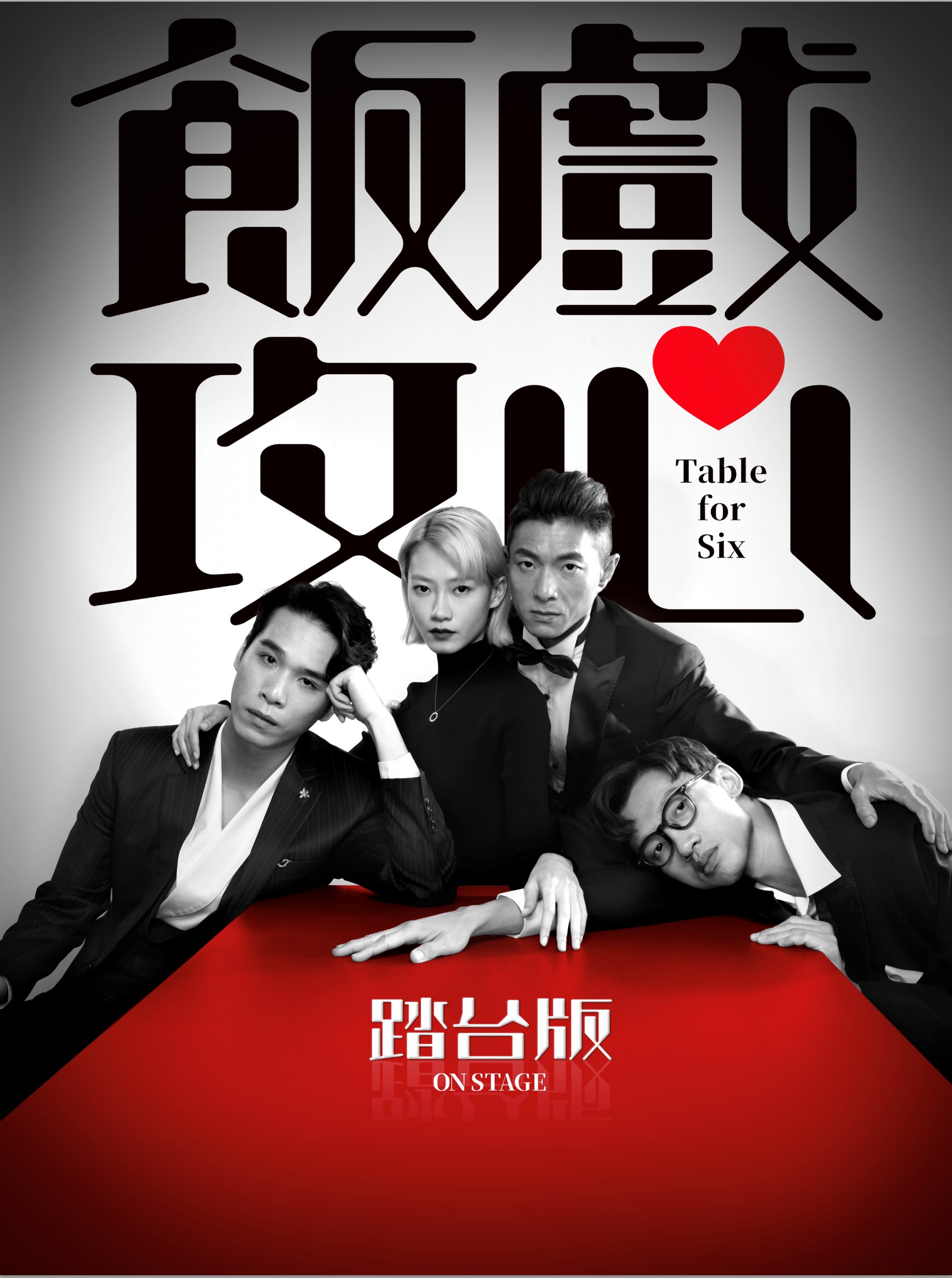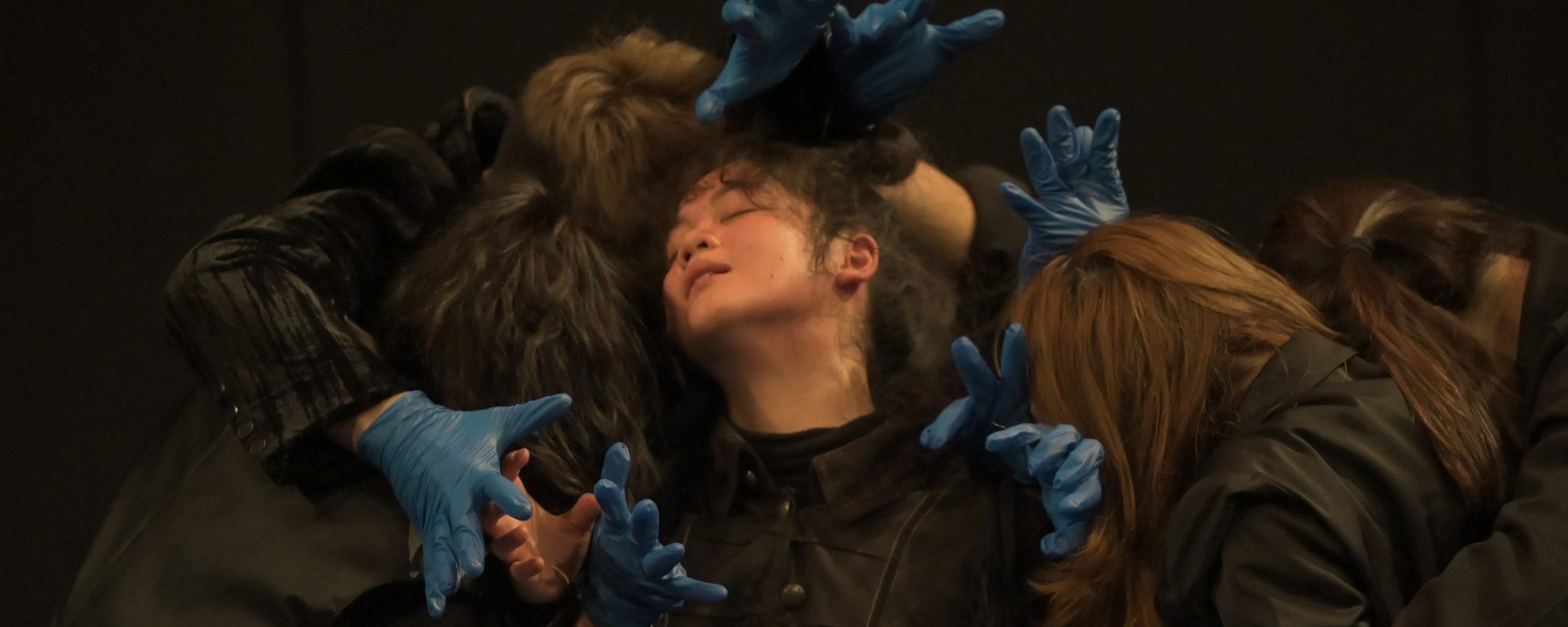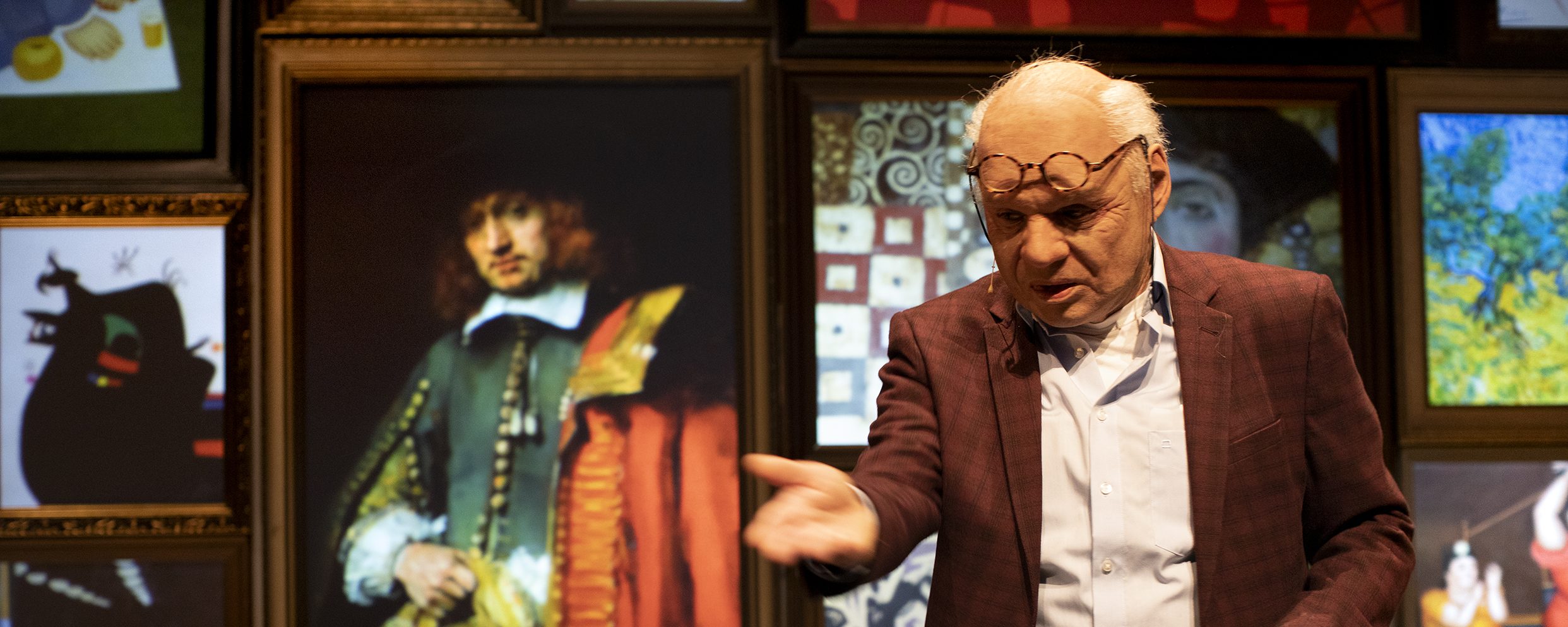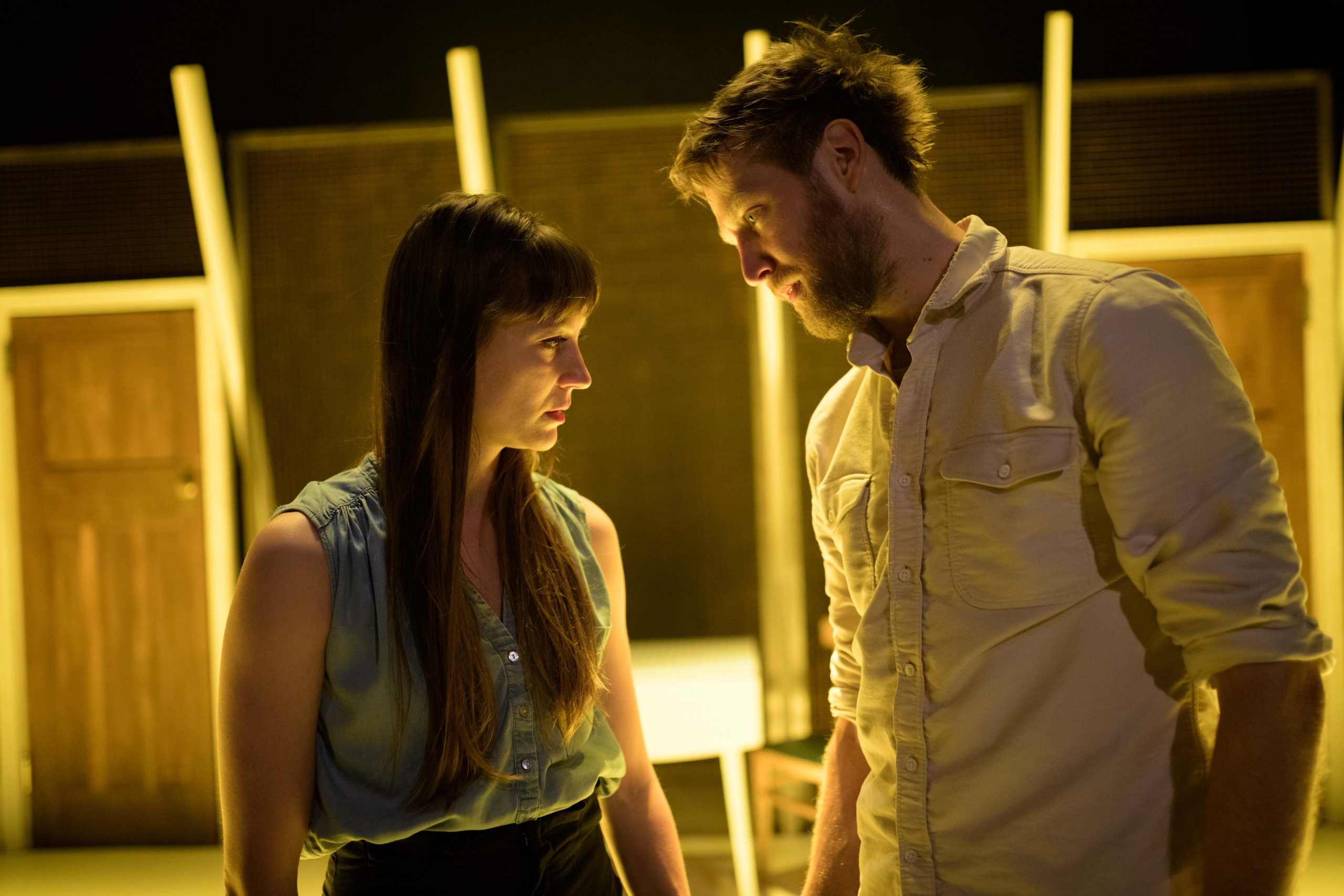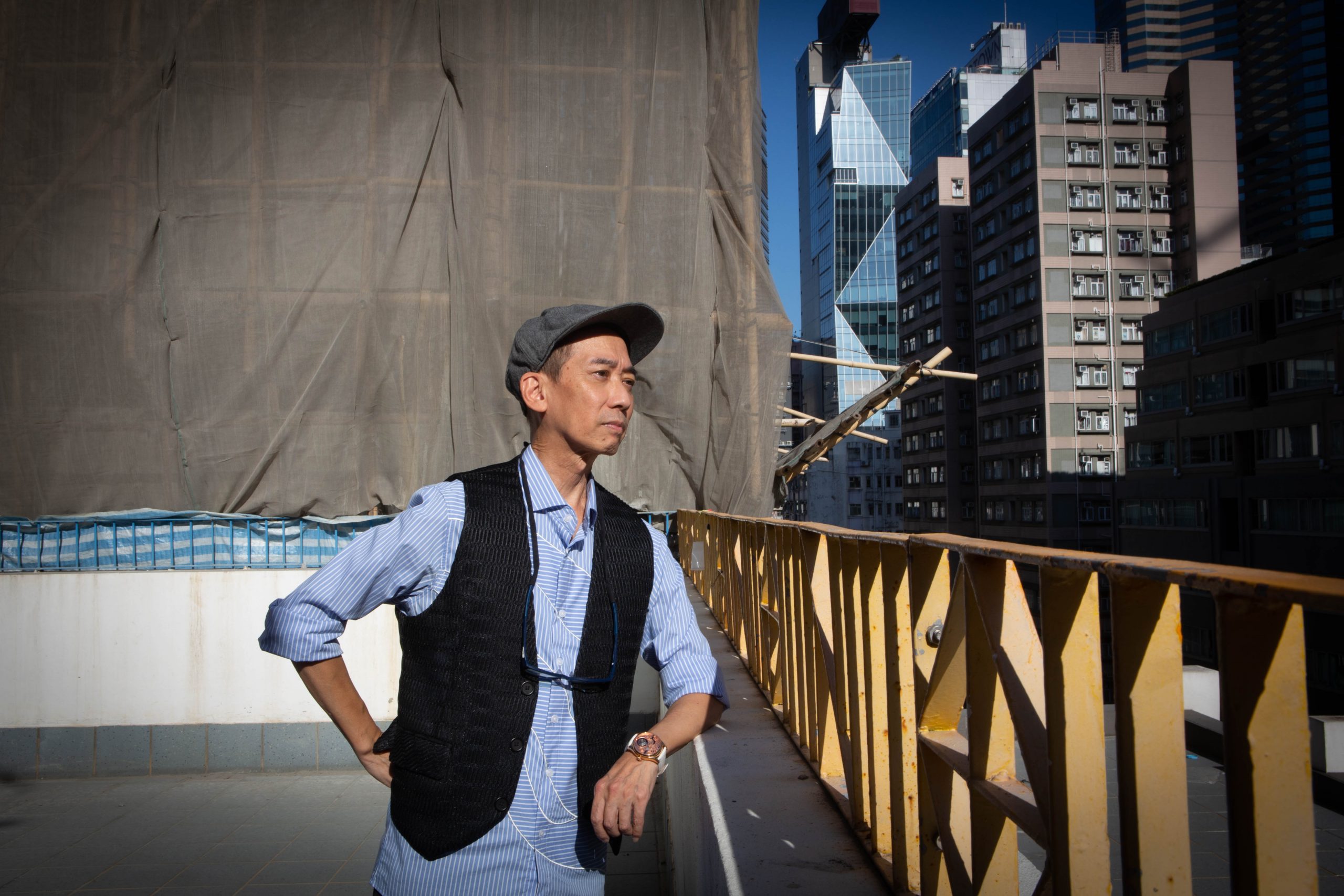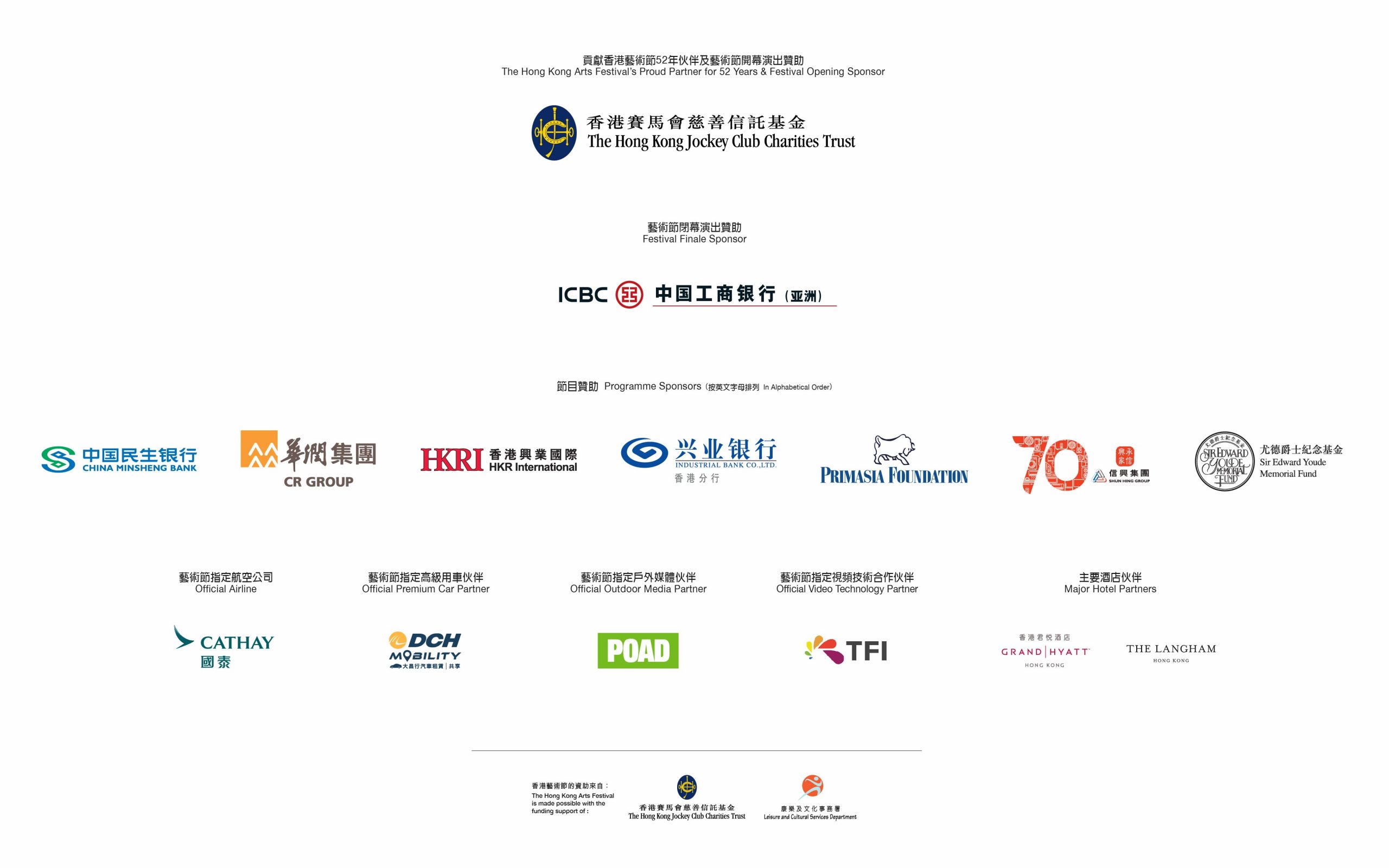There are times when people flip their lids and spill the beans over the course of a meal. And especially so during family dinners. In the script of Table for Six on Stage, Sunny Chan challenges many comedy stereotypes, and brings the audiences to laughter and tears with bitter, witty banter flying across the table during the dinner scenes. The film that ranks second in the history of the Hong Kong box office is now ready to be presented on the stage of the Hong Kong Arts Festival in a new experiment.
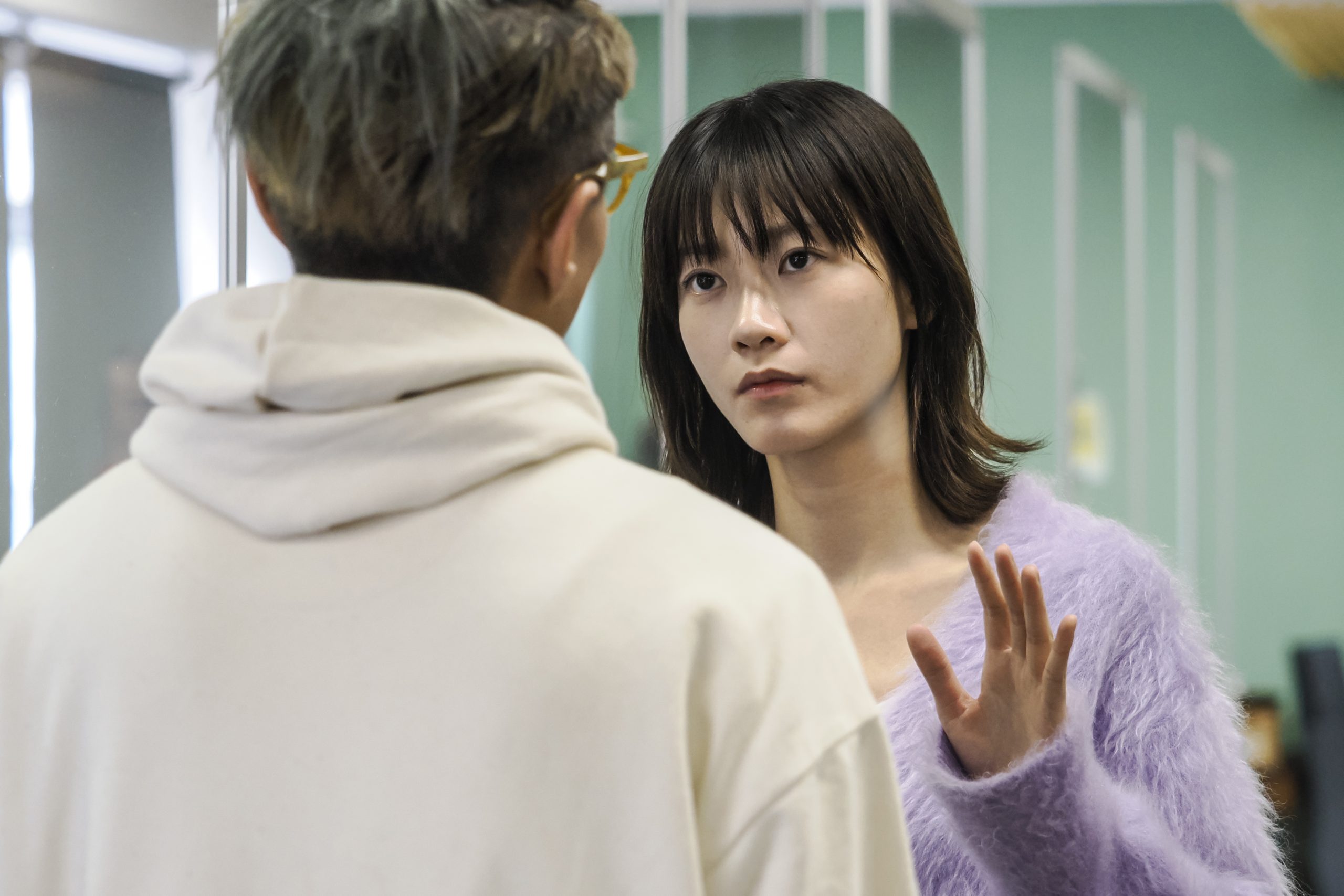
This time around, a new ensemble has been brought on board: Endy Chow, Leung Chung-hang and theatre actresses Birdy Wong and Grace Wu are joined by Peter Chan and Fish Liew from the original film. From the big screen to the stage, the chemistry sparked between the cast members is highly anticipated.
The play sets the stage with plots drawn from the original film. The much-missed ex-girlfriend of the eldest brother unexpectedly turns up as the new love interest of the second brother. To even the score, the eldest brother brings home another girl, Meow. And the third brother, who is too preoccupied with his esports career, is in a relationship with Josephine, a woman older and wiser than him. Bearing in mind that following recipes mindlessly would never make a chef great, Chan believes that adapting a film script for the stage should never simply be a copy-and-paste process. He made a huge effort to recreate the script and even made bold moves to reshape the characters.
In the hope of avoiding comparisons between the two ensembles, Chan re-tailored the background and occupation of each role to match each actor's unique character. "I deleted elements heavily marked by the actors in the film version, and let the new cast ensemble colour the stage with their own acting style," he says. The role of Meow in the film was tailor-made for Lin Min-Chen, and Chan couldn't imagine just creating a copy of the character. "Min-chen has her own unique acting style and I believe that Birdy Wong has her own approach to the role. There is absolutely no need to imitate Min-chen."
More intense fighting with a youthful big brother
Endy Chow and Dayo Wong, who play the big brother on stage and screen respectively, have a 20-year age gap. Surprisingly, this discrepancy in turn adds new dimensions to the adapted play. "Dayo, who is much older than Louis Cheung and Peter Chan, acts more like a father figure burdened by the responsibilities on his shoulders—and that shows in his interactions with the two brothers. In contrast, Endy Chow has a smaller age difference with Leung Chung-hang and Peter Chan, allowing for more heated and relentless arguments between the siblings."
As for the role of Monica, who lands the two brothers in a love triangle, Chan's first choice was none other than Fish Liew. Refined and polished by a succession of roles in films such as LIMBO, Liew's acting skills have improved exponentially, demonstrating a full range of emotions. "I have faith in her portrayal of Monica, who's attractive in her own way. Stephy [Tang Lai-yan, from the original film] has that girl-next-door charm that everyone likes. In comparison, Fish is more aggressive. While Stephy played up the neuroticism by bottling up her emotions, Fish chooses to unleash them, which gives her another way to transcend the role."
After finishing the script, Chan engaged in detailed conversations with the actors to figure out their personalities and their preferred acting methods, before changing the script to suit their needs. "I always meet each and every member of the cast for discussions, and fine-tune the script afterwards. In particular, I'm still in talks with Peter Chan—who plays the youngest brother—to see if there's another way to portray the role."
More than one million people are estimated to have seen Table for Six in theatres. Jam-packed with jokes, audience members usually walked out of the theatre in high spirits. So how does a playwright keep the same jokes alive on stage? "Many memorable scenes have been kept, but have been rewritten in an effective way that retains the essence." So we are guaranteed variations on the narrative beats—which is exactly what I wanted to hear.
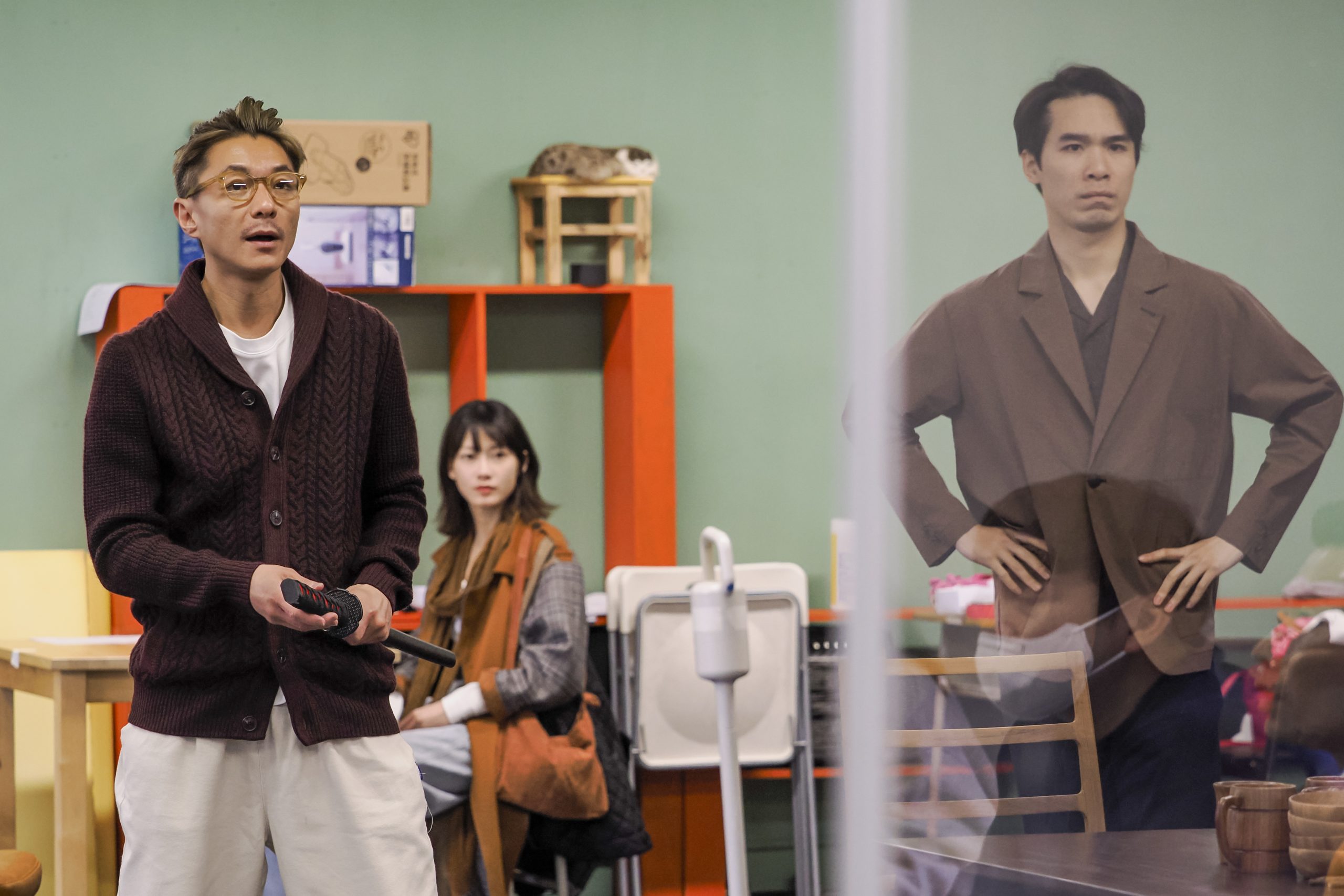
Engage-ability, the real magic of drama
There is one main takeaway Chan got from his debut film, Men on the Dragon: a well-delivered punchline is crucial to comedy, yet to be really land, it must intertwine with the plot line. "The viewers do not wait for moments of comedy alone, but character development instead." Traditional comedy merely attempts to make the audience laugh with a few well-designed moments of comedy, and the storylines are often completely predictable. Table for Six amplifies the melodramatic conflicts within the lines, just to draw the audience into following the interactions between main characters. Only then, with an unexpected twist of absurdity, caught off-guard, the audience would burst into an uncontrollable belly laugh.
One such moment in the film happens when the marriage proposal of Peter Chan, the youngest brother, was turned down by Ivana Wong. Drenched in sadness, Ivana Wong was comforted by Lin, who put on a solemn face and said: "You two are like Brad Pitt and Angelina Jolie together" Apparently, Lin said this mistaking its meaning for "a match made in heaven". "I really love writing this kind of comedic humor. I am down for a challenge, that even a heated argument can be funny, without affecting the conflict itself. Angry or sad, you still believe in the emotions that the two characters experienced." Same for the play version, Sunny Chan put an emphasize on first developing a solid narrative, before embedding it with twists and jokes.
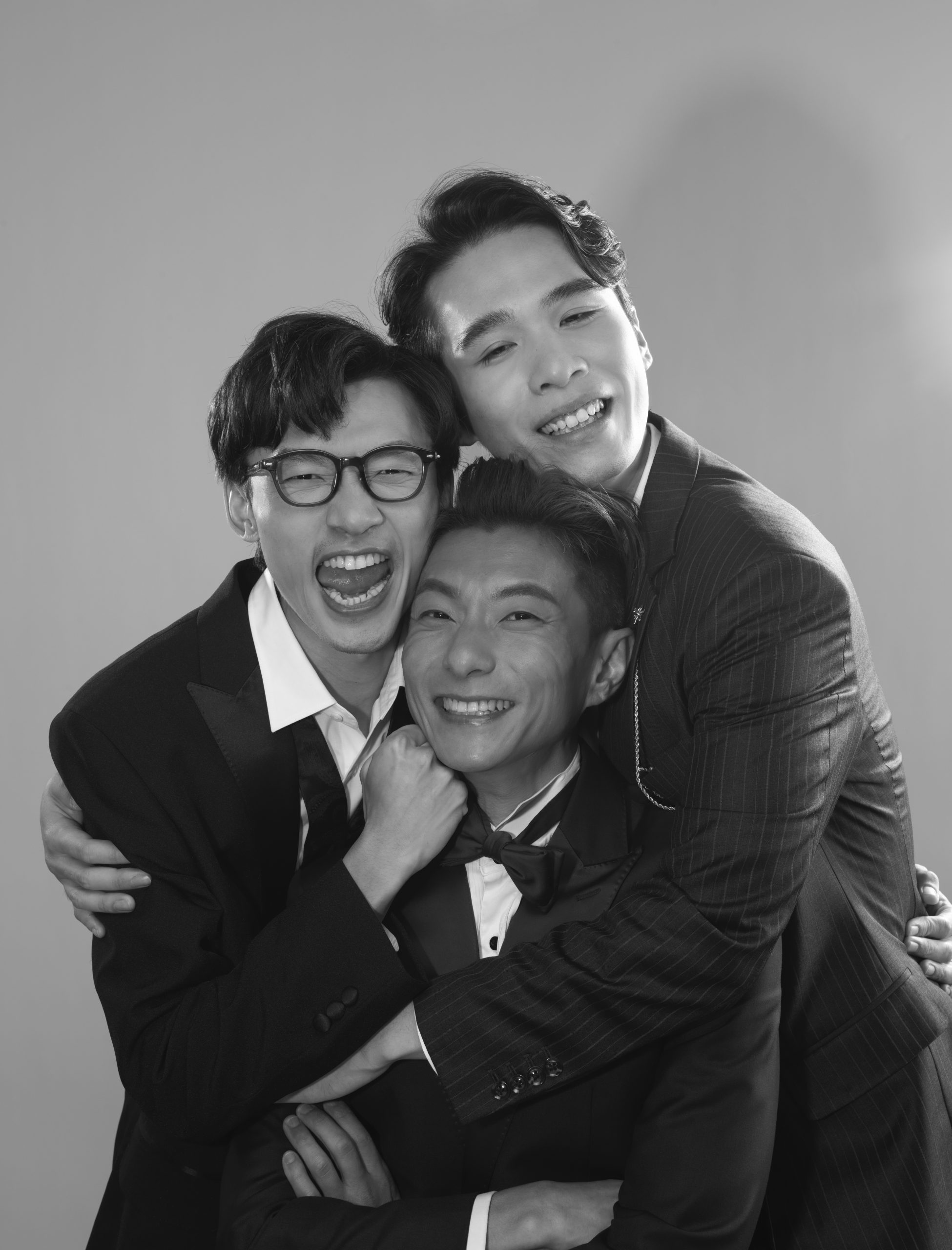
Curiosity piqued by bedroom scene at a distance
Chan, who wrote and directed the film, only acts as playwright of the stage play. "As I am lacking in stage production experience, I was afraid I would hinder the creative process. Plus Tony [Wong] has an imagination fertile enough to elevate the production to the next level." Chan originally intended to remove the dinner scene in which the six main characters break out into a brawl, but the director urged him not to. "Putting such an ugly fight onstage did not seem appropriate to me initially. But then Tony told me that if there was adramatic need for it, and if all I was worried about was the effect, he would present it in a well-suited way on stage. Once I heard that, I knew that this collaboration was going to be fun," says Chan. "When I wanted to avoid the difficult work, he had faith in me."
Another source of difficulties was the fact that many crucial scenes in the film take place inside different rooms, which initially caused headaches for Chan. He then discovered the value in simply "letting the professionals do it". "My question was,'There is no camera on stage, so how do we present the scenes within the walls without changing the set?'Tony then suggested placing the dining room in the middle of the stage, and the rooms behind it. When a scene occurs in these rooms, the cast members enter them, even though they are mostly hidden. By staging the drama at a distance, and letting the audience only see half of it—there is a heightened sense of voyeurism." By keeping what happens in these rooms away from the prying eyes of the spectator, this design satisfies the audience's need to "gossip", successfully turning the tables around.
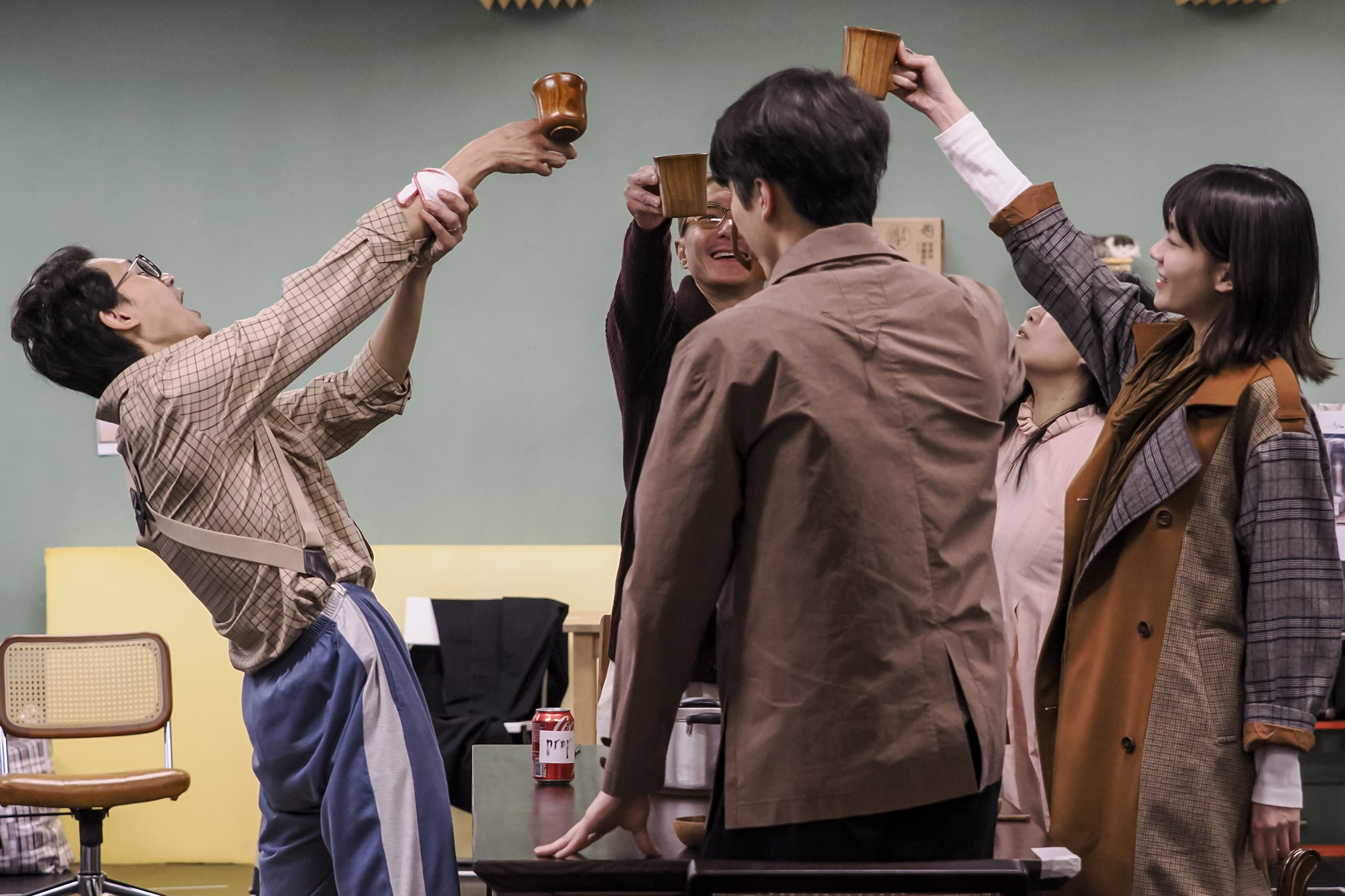
Dramatic style intertwined with the theme of breaking free
In the film, Sunny Chan toys with the setting of one home, six characters and several meals, yet with legitimate reasons. "The setting goes hand in hand with the subject matter. Basically, Dayo Wong's character never left the house, because he was trapped by his mother's last words, memories of ex-girlfriend, and the responsibility to keep the family alive as man of the house. Physically or mentally speaking, he needs to step out, hence the ending to drag him out of the apartment. The story and the setting go the same on stage. In the end, by my design, Endy Chow must walk out."
Finally, Endy Chow stepped out of the door. What inspired him to leave would no longer be the same as the film – where the eldest brother, played by Dayo Wong, decided to let go and leave, after a heartfelt conversation with his mother. The play would not re-enact that scene. "Sending the mom on stage is an inferior option. The film has already done it, and redoing it is a vapid choice. It's interesting when Dayo Wong encountered the mother played by Fish Liew, because she was, visibly, much younger than Dayo." To him, if Endy Chow meets a mother figure of similar age with Fish Liew, it would instantly lose the appeal. He emphasized that, if the play only stars six actors, he would use another mean to let Endy Chow exit, creating an equally lingering ending.
Even though the film was unable to be scheduled on screens during Chinese News Year, Sunny Chan believed that there is always a better timing. The film's high-grossing box office and the invitation to a theatrical adaptation are living proof that the movie can go further, more than being just "another blockbuster'. "Looking back now, there is no need to lose one's mind when things happen. In this world, there is no absolute good or evil – that is my faith, and what I instilled in the play. Losing Monica was extremely painful to the eldest brother. Yet, without this, how would he meet Ah Meow?", said Sunny Chan with a laugh, calling himself a "zen" believer in serendipity.
There is no path taken in vain. Everything happens for a reason.
Shun Hing Group 70th Anniversary Proudly Sponsors
Table for Six on stage
Detail: https://www.hk.artsfestival.org/en/programme/table_for_six
